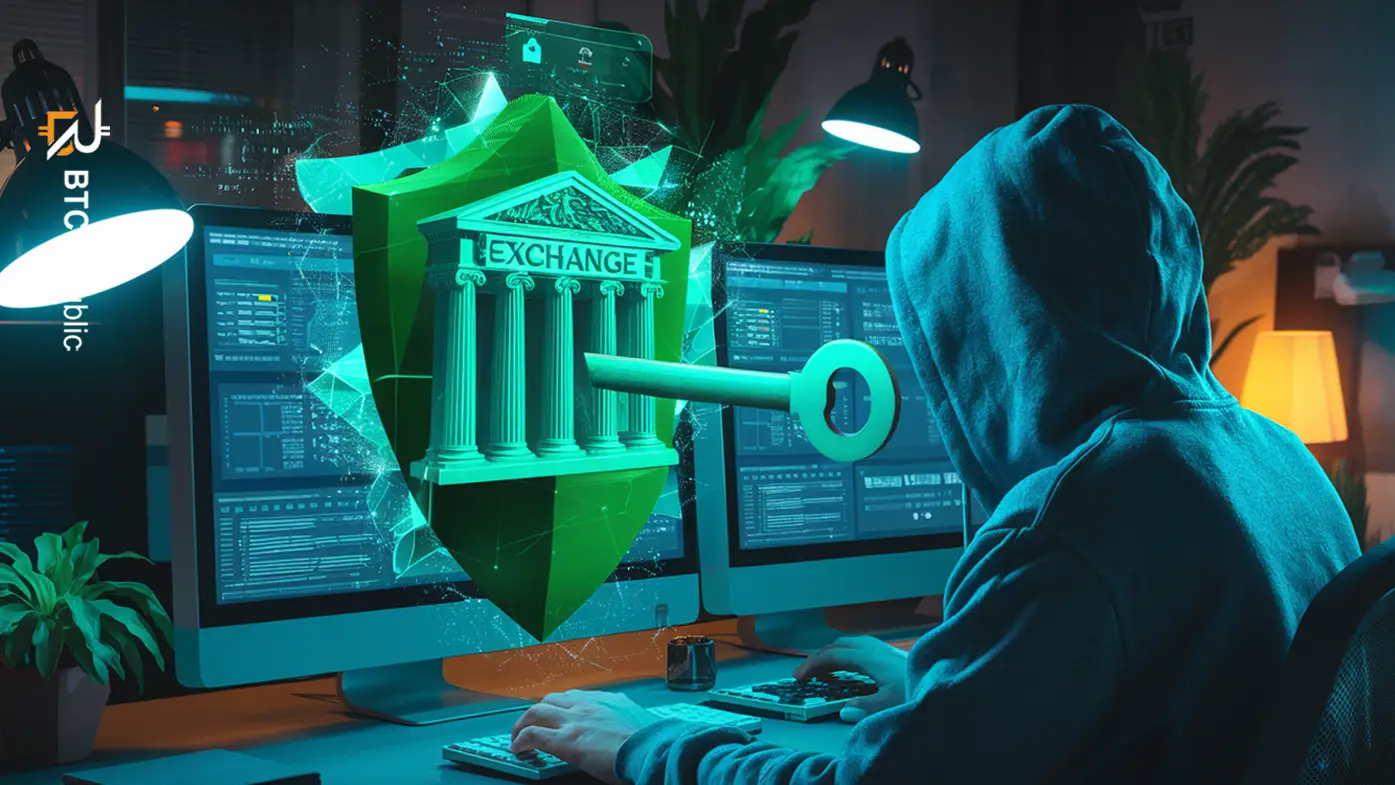The fast-growing nature of the cryptocurrency market has sadly brought about an increase in crypto cybercrimes, including stealing. According to blockchain researchers TRM Labs, the amount of cryptocurrency stolen in hacks worldwide more than doubled in the first half of 2024 compared to the same time last year.
Specifically, by June 24, 2024, hackers had taken more than $1.38 billion in cryptocurrency, up from $657 million during the same period in 2023, TRM Labs reported.
While these numbers are concerning, being informed can help you stay safe. This extensive guide provides the knowledge you need to guard against crypto theft.
Recent Trends In Crypto Theft
In recent years, cryptocurrency hacking has become a major concern, resulting in billions of dollars stolen from various crypto platforms and revealing weaknesses in the system.
According to a “Crypto Crime Report” published last year by Chainalysis, $3.7 billion was stolen in 2022, making it the worst year ever for crypto theft.
However, in 2023, the total amount stolen dropped by about 54.3% to $1.7 billion. Despite this decline in value, the number of hacking incidents increased from 219 in 2022 to 231 in 2023.
The sharp decrease in stolen funds is mainly because there were fewer hacks in decentralized finance (DeFi). In 2021 and 2022, attacks on DeFi platforms caused a massive rise in stolen cryptocurrency, with cybercriminals taking over $3.1 billion in 2022 alone.
However, in 2023, the amount stolen from DeFi protocols fell to just $1.1 billion. This is a 63.7% reduction in the total value taken from these platforms compared to the previous year.
Additionally, the proportion of all stolen funds that came from DeFi victims also declined significantly in 2023, as shown in the chart below.
What Can Lead To Cryptocurrency Theft?

Cryptocurrency theft can occur due to various factors, many of which are related to the inherent nature of digital assets and the technologies that support them. Here are some key factors that can lead to cryptocurrency being stolen:
- Weak passwords: Poorly chosen passwords for wallets and exchanges can be easily cracked, allowing attackers to gain access to funds.
- Phishing attacks: Scammers often use phishing techniques, such as fake websites or emails, to trick users into revealing their private keys or login credentials.
- Malware and keyloggers: Malicious software can be installed on a user’s device, capturing keystrokes or stealing wallet information.
- Insecure wallets: Using wallets that are not adequately secured, such as some online wallets or those without strong encryption, increases the risk of theft.
- Public Wi-Fi: Accessing cryptocurrency accounts over unsecured public Wi-Fi networks can expose users to interception by hackers.
- Unpatched software: Failing to update wallet software or other cryptocurrency applications can leave users vulnerable to known exploits.
- Lack of two-factor authentication (2FA): Not enabling 2FA on accounts provides a single point of failure, making it easier for attackers to compromise accounts.
- Social engineering: Attackers may manipulate individuals into providing sensitive information or access to their accounts through deceitful tactics.
- Insider threats: Employees at exchanges or wallet providers can exploit their access to steal funds or customer data.
- Investment scams: Fraudulent schemes, such as Ponzi or fake ICOs, can lead users to unwittingly send funds to scammers.
- Unregulated markets: Trading on unregulated platforms can expose users to scams and fraud, as there may be little recourse for lost funds.
The Biggest Heists In The Crypto Industry
Unfortunately, the cryptocurrency industry continues to be subjected to constant incidents of theft. Here are some of the industry’s biggest cases of stolen cryptocurrencies to date:
- Mt. Gox (2014): One of the most infamous cases, Mt. Gox, was a Bitcoin exchange that lost around 850,000 Bitcoins (valued at over $450 million at the time) due to a hack. The exchange filed for bankruptcy, leading to extensive legal battles and investigations.
- Coincheck (2018): Japanese exchange Coincheck was hacked, resulting in the theft of about $530 million worth of NEM tokens. This incident raised questions about security practices in the crypto industry and led to increased regulatory scrutiny in Japan.
- Poly Network (2021): In a high-profile incident, a hacker exploited vulnerabilities in the Poly Network, stealing over $600 million in various cryptocurrencies. However, the hacker later returned most of the funds, claiming it was a “white hat” operation.
- Ronin Network (2022): The Ronin Network, associated with the popular game Axie Infinity, suffered a hack that resulted in the theft of around $620 million in Ethereum and USDC. The incident highlighted vulnerabilities in blockchain bridges.
- Binance (2022): Binance, one of the largest cryptocurrency exchanges, experienced a hack where approximately $570 million worth of BNB was stolen. The exchange was able to mitigate losses and enhance security measures.
- Wormhole (2022): The cross-chain bridge Wormhole was exploited, leading to the theft of around $320 million in Ethereum. The incident raised concerns about the security of bridge protocols in decentralized finance (DeFi).
- WazirX (2024): WazirX, India’s largest cryptocurrency exchange, was breached on July 18, 2024, leading to the theft of $234.9 million from its multi-signature wallet and causing significant shockwaves in India’s crypto landscape.
- PlayDapp (2024): On February 9 and 12, the crypto gaming and NFT platform PlayDapp suffered security breaches that led to the unauthorized minting of 1.79 billion PLA tokens worth more than $290 million.
These cases illustrate the ongoing risks in the cryptocurrency space and the importance of security measures for exchanges and users alike.
Ways To Prevent Crypto Theft

Preventing crypto theft is crucial for safeguarding your digital assets. Here are some effective strategies to enhance your security:
- Store your cryptocurrencies in a hardware wallet, which keeps your private keys offline, making it less vulnerable to online attacks.
- Use 2FA for your exchanges and wallets. This typically involves a second verification step, such as a text message or an authenticator app.
- Use multi-signature wallets because they require multiple private keys to authorize transactions, adding an extra layer of security.
- Research and use well-known and trusted cryptocurrency exchanges. Check their security measures and user reviews before creating an account.
- Ensure that your wallet, devices, and antivirus software are updated regularly to protect against vulnerabilities.
- Create strong, unique, and complex passwords for your crypto accounts, and consider using a password manager to keep track of them. Change your passwords now and again.
- Be wary of phishing attempts by constantly checking the URL and sender’s email before clicking links or providing personal information. Be cautious of unsolicited messages.
- Avoid sharing your wallet address or details about your holdings publicly. The less information you share, the less likely you are to be targeted.
- Regularly back up your wallet data and store it securely. This can help you recover your assets if your wallet is compromised.
- Keep an eye on your account activity and transactions. Immediate action can help mitigate damage if you notice any suspicious behavior.
- Stay informed by keeping up with the latest, including security practices and potential threats in the industry. Awareness is a powerful defense.
- Diversification can help. Don’t keep all your cryptocurrencies in one place. Spread them across multiple wallets and exchanges to minimize risk.
Implementing these strategies can significantly reduce the risk of crypto theft and help you maintain control over your digital assets. Stay vigilant and proactive about your security!
12 Steps To Recover Stolen Crypto
Recovering stolen cryptocurrency can be challenging, but there are steps you can take to try to regain access to your assets. Here’s a guide to help you navigate the recovery process:
- Act quickly: Time is critical. The sooner you act, the better your chances of recovery. Delay could lead to irreversible loss.
- Document everything: Keep a detailed record of all transactions, including wallet addresses, transaction IDs, and any communications related to the theft.
- Contact your exchange or wallet provider: If the theft occurred through an exchange or wallet service, immediately contact their support team. Provide them with all the relevant details so they can assist in your case.
- File a police report: Report the theft to your local law enforcement agency. Although they may not specialize in cybercrime, having an official report can be helpful for legal purposes.
- Notify blockchain analysis firms: Consider reaching out to firms that specialize in tracking stolen cryptocurrencies. They can analyze the blockchain and may provide insights or assistance.
- Report to regulatory authorities: If the theft involves a significant amount, report it to regulatory bodies like the Federal Trade Commission (FTC) in the U.S. or equivalent agencies in your country.
- Monitor the blockchain: Use blockchain explorers to track the stolen funds. You may be able to see if they are moving to known exchanges, which could help in recovery efforts.
- Alert the community: Share your theft story on social media and crypto forums. Sometimes, community members can provide leads or information about similar cases.
- Consider legal action: If the amount stolen is significant, consulting a lawyer with experience in cryptocurrency cases can help you understand your options.
- Strengthen your security: After taking action to recover your funds, learn from the Incident and enhance your security practices to prevent future thefts.
- Monitor developments: Keep an eye on any updates related to your case, as new developments may arise over time.
- Accept potential loss: Understand that recovery is not guaranteed. While hoping for the best recovery outcome, prepare for the possibility that you may not regain access to your stolen assets.
While the recovery of stolen crypto can be complex and often uncertain, taking all necessary steps can maximize your chances and help you regain some control over your situation.
Laws Against Crypto Theft

If you’re dealing with a specific case or situation, consulting a legal professional familiar with cryptocurrency law in your jurisdiction is advisable. Here are some notable laws and regulations aimed at combating cryptocurrency theft and related cybercrimes:
Computer Fraud And Abuse Act (CFAA) – United States
Enacted in 1986, the CFAA is a key piece of legislation in the U.S. that criminalizes unauthorized access to computer systems. It has been used to prosecute cases involving hacking and theft of cryptocurrencies. Violators can face significant fines and prison time.
The Digital Asset Framework – European Union
The EU has been working on comprehensive regulations regarding digital assets, including provisions to combat fraud and theft. The proposed Markets in Crypto-Assets (MiCA) regulation aims to provide a regulatory framework that enhances consumer protection and market integrity.
Proceeds of Crime Act (POCA) – United Kingdom
This act allows law enforcement agencies to seize and recover assets obtained through criminal activities, including cryptocurrency theft. It provides the legal framework for investigating and prosecuting financial crimes.
Cybercrime Convention – Council of Europe
The Budapest Convention on Cybercrime is an international treaty that provides a framework for combating cybercrime, including crimes involving digital currencies. It facilitates international cooperation and the sharing of information between law enforcement agencies.
Know Your Customer (KYC)/Anti-Money Laundering (AML) Laws – Various Countries
Many countries have implemented KYC and AML laws that require cryptocurrency exchanges and service providers to conduct due diligence and report suspicious transactions. These laws aim to prevent the use of cryptocurrencies for illicit activities, including theft. A good example is The UK’s Financial Conduct Authority (FCA).
Breach Notification Laws – Various Jurisdictions
Some jurisdictions have laws requiring companies to notify affected individuals and authorities in the event of a data breach that compromises sensitive information, including that related to cryptocurrency holdings. This can help victims take action more quickly.
The Role Of AI In Combating Crypto Theft

AI plays a crucial role in combating cryptocurrency theft and enhancing the security of digital assets. Here are some key ways AI contributes to this effort:
Fraud Detection and Prevention
AI algorithms can analyze vast amounts of transaction data to identify suspicious patterns that may indicate fraudulent activity. By using machine learning techniques, AI systems can learn from historical data to improve their detection capabilities, flagging unusual transactions in real time.
Behavioral Analysis
AI can monitor user behavior on exchanges and wallets, establishing baselines for normal activity. When deviations from this baseline occur—such as sudden large withdrawals or access from unusual locations—the system can trigger alerts for further investigation.
Automated Incident Response
In the event of a detected threat, AI can facilitate automated responses, such as freezing accounts, initiating additional verification processes, or alerting security teams. This rapid response can help mitigate potential losses from theft.
Risk Assessment
AI tools can assess the risk associated with various crypto transactions, wallets, and exchanges. By evaluating factors like transaction history, geographic location, and user behavior, AI can provide insights into the potential for theft or fraud.
Smart Contract Audits
In decentralized finance (DeFi), AI can assist in auditing smart contracts for vulnerabilities. By using advanced algorithms to analyze code, AI can identify security flaws that could be exploited by attackers, helping to prevent theft before it occurs.
Phishing Detection
AI can analyze communication patterns, such as emails and messages, to identify potential phishing attempts. By recognizing common characteristics of phishing attacks, AI tools can help protect users from falling victim to scams that lead to theft.
Blockchain Analysis
AI can enhance blockchain analysis by tracing the movement of stolen funds across different wallets and exchanges. This can aid law enforcement in recovering stolen assets and identifying perpetrators.
User Education
AI-driven chatbots and virtual assistants can provide users with information on best practices for securing their crypto assets, helping to prevent theft through social engineering or poor security hygiene.
Collaboration and Data Sharing
AI systems can facilitate collaboration between exchanges, law enforcement, and cybersecurity firms by sharing threat intelligence and analysis. This collaborative approach can improve overall security across the crypto ecosystem.
Stolen Crypto Fund Recovery Companies

Several companies specialize in helping individuals and businesses recover stolen cryptocurrency assets. Here are some notable ones:
Chainalysis: A well-known blockchain analysis firm that works with law enforcement and financial institutions to provide investigative services to track stolen crypto, conduct investigations into fraud and theft, and offer compliance solutions. Their software can help trace the movement of stolen funds on various blockchains.
KeychainX: They utilize advanced blockchain analysis tools to follow the trail of stolen funds, identify where the assets have been moved, and collaborate with law enforcement agencies to assist clients in recovering their assets. They also provide guidance on securing wallets and preventing future theft.
CipherTrace: A blockchain intelligence company that provides services for tracking and tracing cryptocurrency transactions. They offer tools for identifying stolen funds, providing analytics to law enforcement, and helping businesses comply with regulations.
Elliptic: Specializes in blockchain analytics and compliance solutions for cryptocurrencies.They have resources that can help monitor transactions, identify risks, and trace stolen funds. Their services are used by law enforcement agencies and financial institutions to investigate crypto theft.
BitRecovery: Focused on assisting individuals and businesses in recovering lost or stolen cryptocurrencies. They leverage advanced blockchain analytics and forensic tools to trace and identify stolen assets, working closely with law enforcement agencies to facilitate recovery efforts. In addition to recovery services, BitRecovery provides consultation on enhancing security measures for cryptocurrency holdings.
Important Considerations Before Choosing A Recovery Company

When selecting a recovery company for stolen cryptocurrency, it’s crucial to consider several factors to ensure you’re working with a legitimate and effective service. Here are some important considerations:
Reputation And Credibility
- Research reviews: Look for customer testimonials and reviews on independent platforms to gauge their reliability.
- Check for case studies: A reputable company should have documented success stories or case studies demonstrating their recovery capabilities.
Experience And Expertise
- Industry knowledge: Ensure the company has experience specifically in cryptocurrency recovery and understands blockchain technology.
- Qualified team: Check if the team includes experts in cybersecurity and blockchain forensics.
Transparency
- Clear processes: A reputable recovery company should provide a clear outline of their recovery process and what you can expect.
- Fee structure: Understand their fee structure upfront to avoid unexpected costs. Be wary of companies that demand hefty upfront fees without guarantees.
Legal And Ethical Practices
- Compliance with laws: Ensure that the company operates within legal boundaries and has a clear policy regarding cooperation with law enforcement.
- Ethical standards: Look for companies that adhere to ethical practices in their operations.
Communication And Support
- Customer service: Choose a company that offers good customer support, provides timely updates, and is available to answer questions throughout the recovery process.
- Consultation availability: A good recovery service should offer initial consultations to discuss your case without pressure.
Success Rate
- Track record: Inquire about their success rate in recovering stolen assets. While not all cases are recoverable, a strong track record can indicate effectiveness.
Security Measures
- Data protection: Ensure the company follows strong data protection practices to safeguard your information during the recovery process.
Avoid Scams
- Research for red flags: Be cautious of companies that make unrealistic promises or guarantee recovery of stolen assets. Scams are prevalent in the crypto space, so due diligence is essential.
By carefully considering these factors, you can increase the likelihood of choosing a reputable recovery company that can assist you effectively in recovering stolen cryptocurrency assets.
Conclusion
Suppose you are about to venture into the exciting and potentially rewarding crypto industry. In that case, you should bear in mind that your crypto can be stolen, especially if you do not take adequate preventive measures.
Should you become a victim of stolen crypto assets, then the steps enumerated above can help. Note that acting very fast upon discovering the theft can be the difference between recovery and otherwise.
FAQs
Is it possible to reverse a crypto transaction?
No, cryptocurrency transactions are irreversible. Once a transaction is confirmed on the blockchain, it cannot be undone, which makes prevention and security-critical.
Can I track my stolen crypto?
Yes, you can use blockchain explorers to trace the movement of stolen funds. This can help you determine where the assets have been sent and whether they can be recovered.
Can I recover stolen cryptocurrency?
Recovering stolen cryptocurrency can be challenging, but it’s not impossible. The chances depend on various factors, such as how the theft occurred and whether the funds have been moved to a traceable wallet.
What role do cryptocurrency exchanges play in recovery?
If stolen funds are traced to an exchange, you can contact that exchange and provide them with the relevant information. Some exchanges have policies to freeze or return stolen funds, depending on the situation.
Can I recover stolen crypto through legal action?
Legal avenues may be available, especially if you can identify the perpetrator or the wallet where the funds were sent. Consulting with a lawyer experienced in cryptocurrency law can provide guidance.




